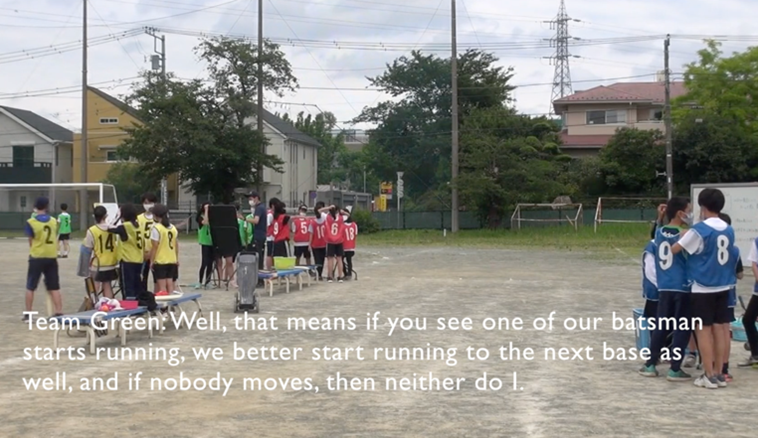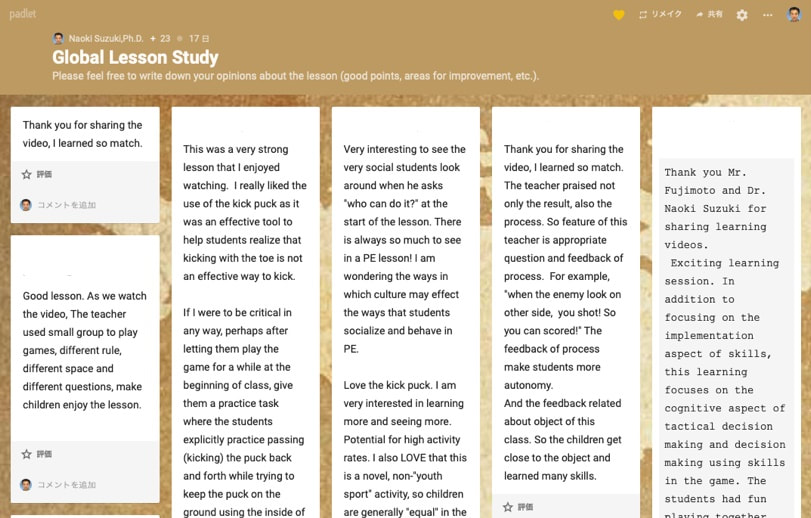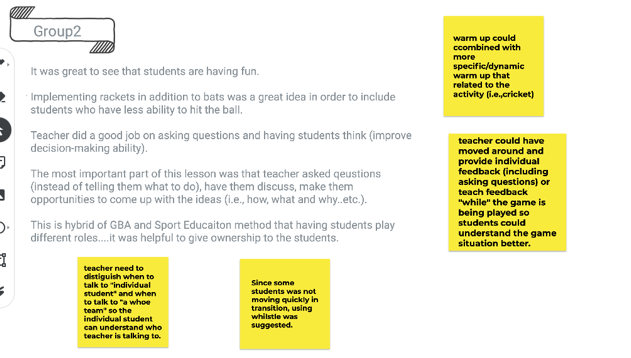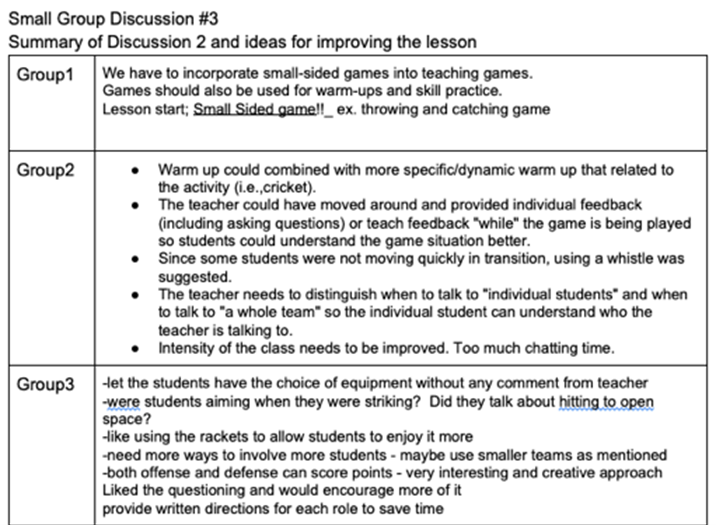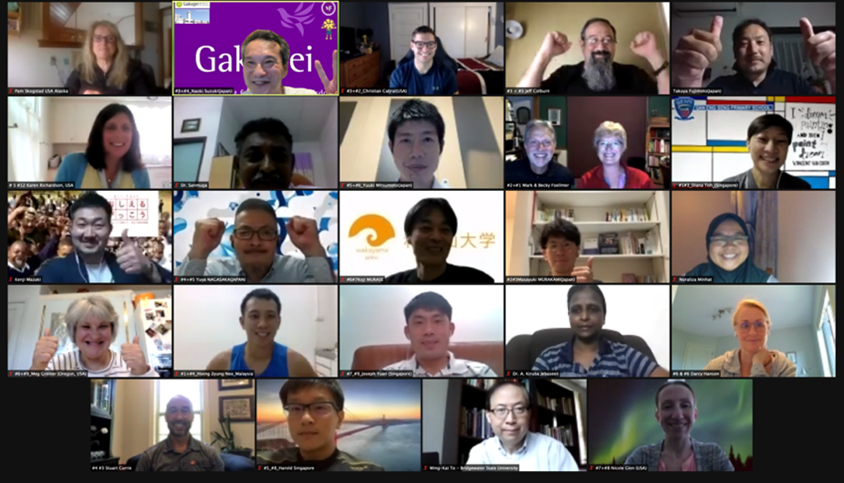At the July workshop, Mr. Kikuchi, a teacher at Setagaya Junior High School attached to Tokyo Gakugei University, proposed a striking/fielding game for first graders. The discussion at this workshop centered on how to conduct warm-ups and group composition. Regarding the warm-up, there were various opinions that the preparatory exercise done mainly by students was static stretching, and that dynamic stretching would be better, or that teachers should intervene intentionally, or that physical activity should be done in small-sided games from the preparatory exercise. I felt that the cultural characteristics of the country were strongly expressed here. In response to these discussions, the participants eventually found a direction to use small-sided games for preparatory exercises.
In the proposed class, the students were divided into four teams, and the leaders of these teams were all boys. This was not specifically decided by the teacher, but as a result of the team's decision, but some of the participants pointed out that there were problems with physical education instruction that led to such a situation. They also pointed out that there were differences in the way the students interacted with each other during the activities between boys and girls. Just the fact that junior high schools are conducting games with both boys and girls learning together, instead of separately, seems to be an innovative lesson in Japan, but I was reminded of the fact that we have created a gender perspective through the way boys and girls interact and contribute to the lesson.
In addition, this class was taught using a hybrid model of Game-Centered Approaches and sports education models, and various opinions were expressed about how to play the role of the learner. The discussion also touched on moral education in Japan, which led to a rethinking of the concept of responsible learning, which I feel was a valuable discussion.
In a questionnaire survey taken after the workshop, 100% of the participants answered that they had gained a lot from both workshops. In addition, 100% of the participants answered that they had the opportunity to participate in the 2nd workshop and 90% in the 3rd workshop. These results and the results of the free comments show that the attempt to collaborate on better physical education classes across countries is worthwhile. There are also many positive comments in the free text. A few participants mentioned the difficulty of verbal communication, and we will continue to take measures to solve this problem by making good use of technology.
Resources
Mr.Fujimoto’s Lesson (Elementary PE):
<Lesson Plan>
https://www.dropbox.com/s/epjfan1wzac7r3s/Lesson%20Plan%20%28Shooting%20Game%29_Mr.Fujimoto.pdf?dl=0
<Video Clip of the Lesson >
https://youtu.be/OpzUDggM1jQ
Global Lesson Study in July
Mr.Kikuchi’s Lesson (Junior High PE):
<Lesson Plan>
https://www.dropbox.com/s/0joaxbovd1vfcbw/Lesson%20Plan%20%28Mr.Kikuchi%29.pdf?dl=0
<Video Clip of the Lesson >
https://youtu.be/j53iTSJnUW0

